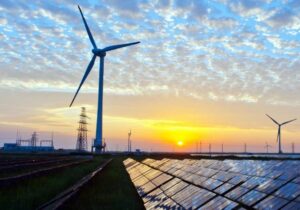 Romania recorded on 15 and 23 January 2017 the highest energy prices in Europe, reaching 74.92 euros per MWh, respectively 96.52 euros per MWh, according to the data from the OPCOM power exchange, the Romanian natural gas and electricity market operator.
Romania recorded on 15 and 23 January 2017 the highest energy prices in Europe, reaching 74.92 euros per MWh, respectively 96.52 euros per MWh, according to the data from the OPCOM power exchange, the Romanian natural gas and electricity market operator.
„Somebody used what happened, this crisis, and got some money from exports. It was a hard winter for a short period of time. Perhaps it took the people from the Ministry of Energy by surprise. I have not found yet from the Ministry of Energy whether or not there were stocks of coal available, the situation of the natural gas stocks, whether this situation was ok or not,” explained Daniel Popescu, PNL member of the Chamber of Deputies, to Digi 24.
The ANRE President, Niculae Havrilet, trusts that this is a conjunctural situation. „In the second quarter of this year, following the increasing water flow, we expect much lower prices for the hydropower and wind power, which will not lead, on average, to a price increase for the second half of the year,” says President ANRE.
The data from the OPCOM website also indicate that the high price from the OPCOM spot market is not caused by an energy shortage, as the total volume of energy traded for January on the OPCOM spot market platforms amounted 6.8 TWh, which exceeds the level of national consumption, estimated at maximum 6 TWh for the same month. Besides, the trading activity on the spot market also includes an additional volume of 3.4 TWh.
The price on the spot markets, January 2017 of 168 lei per MWh.
Also, in times when prices are at maximum level on the spot market, we can notice that Romania imports electricity, according to the data from the Transelectrica website.
On the other hand, there is also information available on the energy market that are not public yet, namely the energy volumes and prices from the contracts for the electricity import and export.
Havrilet: Energy distributors may have problems with receipts
Conjunctural or not, the high price registered on the power exchange during this period will be passed on into consumer costs, said Thursday the Minister of Economy, Alexandru Petrescu. He told that the energy sector is currently going through a time of risk in this cold season, because of the insufficient stocks.
„The impact always passes on into the final bill for consumers, but what is important for us, during these times of crisis, is to look back and see how we got here. If according to the two distribution operators Transgaz and Transelectrica, we have done a very good job and ensured the integrity of the system in both areas, maybe the storage policy or the lack of coherence that this policy had during the summer, with the impact in winter, brought us into an area of higher risk than usual,” minister Petrescu said.
He warned that the critical period has not ended, as we can expect new episodes of frost.
„Once we go past this period of risk that has not ended, we must establish a clear policy regarding the stocks for the next winter,” said Petrescu.
„We have seen some companies that became insolvent and are preparing for bankruptcy. Distribution operators might be left without the amounts they have to receive from such suppliers, „says Niculae Havrilet, President of ANRE.
The head of the Regulatory Authority for Energy assured that the population will not suffer until the summer when tariffs will be recalculated. Although, when the companies that own distribution networks will be left without the money expected from the bankrupt suppliers, the burden will be placed on the customers’ shoulders for recovering the losses.
„The economic impact is, unfortunately, always reflected in the final bill for the consumer,” says Alexandru Petrescu, the Minister of Economy.









